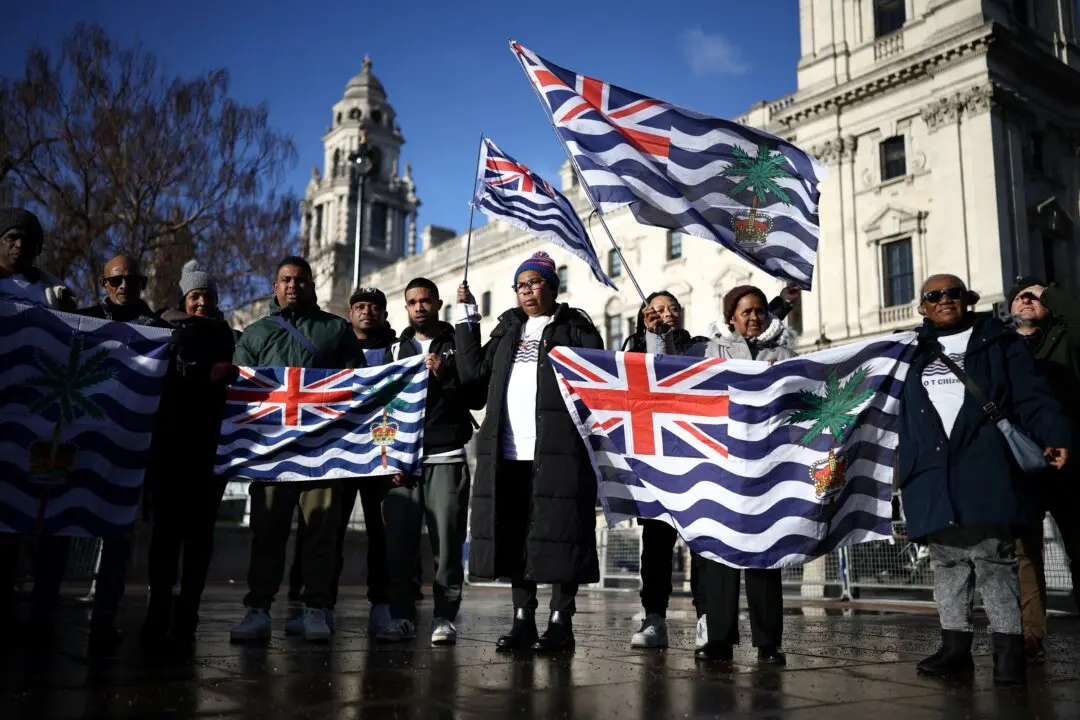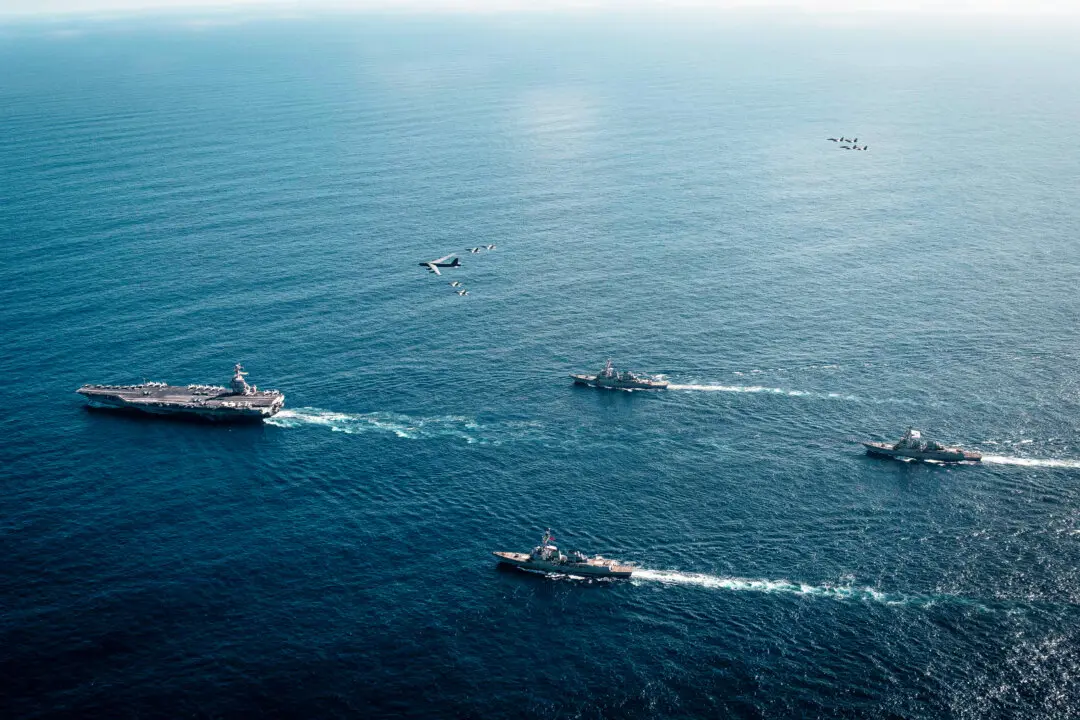News Analysis
Thinking About China
Opinion
Argentina’s Pro-Beijing Deal With the Devil
The Falkland Islands needs more military protection against China and Argentina

Argentina's flag bearers Francesca Baruzzi and Franco Dal Farra lead the delegation during the opening ceremony of the Beijing 2022 Winter Olympic Games, at the National Stadium, known as the Bird's Nest, in Beijing, on Feb. 4, 2022. Manan Vatsyayana/AFP via Getty Images
Anders Corr has a bachelor’s/master’s in political science from Yale University (2001) and a doctorate in government from Harvard University (2008). He is a principal at Corr Analytics Inc. and publisher of the Journal of Political Risk, and has conducted extensive research in North America, Europe, and Asia. His latest books are “The Concentration of Power: Institutionalization, Hierarchy, and Hegemony” (2021) and “Great Powers, Grand Strategies: the New Game in the South China Sea” (2018).
Author’s Selected Articles




